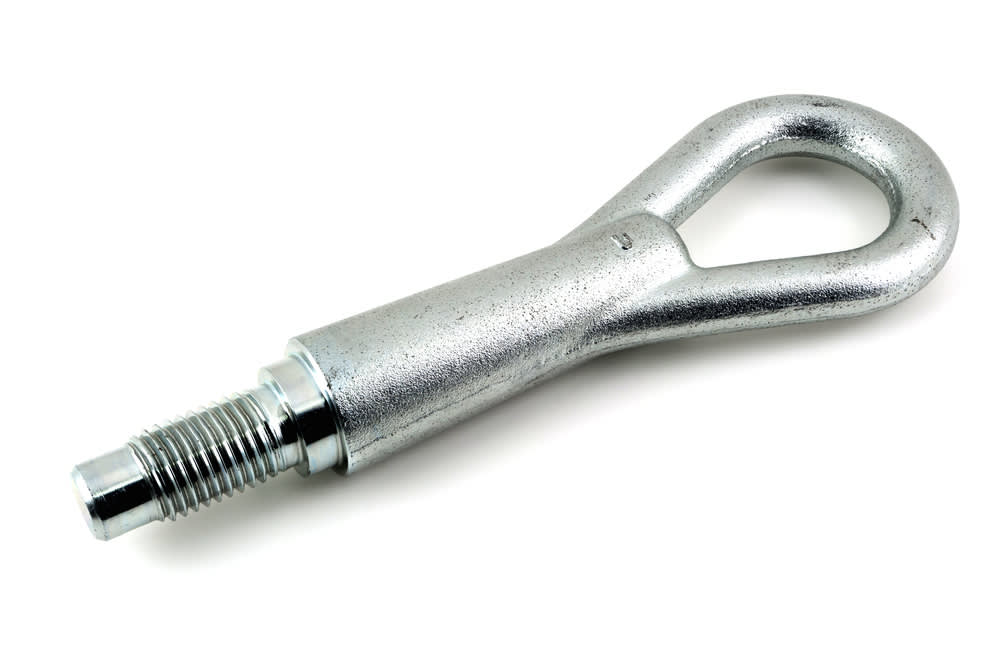

Tow hooks come in a very wide range of styles, types and sizes depending on the application. They’re used for vehicle recovery, and can be attached to anything from a chain to a tow strap to the receiver on a truck.
Buying a quality tow hook boils down to choosing a hook that offers the right strength/weight rating, and can be connected to the recovery system that you’ll be using.
Here are a few important things to keep in mind regarding tow hooks:
Type: First and foremost, make sure you’re shopping for the right type of tow hook. Do you need a traditional hook? Do you need a D-ring? Maybe you need a tow hook with a threaded end to attach to the recovery anchors on the front of a car. On the other hand, you might need one that fits into the receiver on the back of your truck (these can hold D-rings, shackles and more).
Weight: Make sure the tow hook is rated for the weight of the vehicle that needs to be recovered. Don’t use a hook that’s rated well above the vehicle’s weight, as it may be too large for the application (depending on the type of hook and your recovery setup – for instance, a heavy-duty traditional hook may be too thick to fit).
Coating: You’ll want to make sure that the tow hook you purchase has a durable coating to protect it against rust. Powder coating is the most common option, but there are others.
Protection: If you’re using shackles attached to the recovery anchor points on the front bumper of a car, there’s a chance that the shackle will scratch the bumper. Look for a tow hook or shackle that includes an acrylic or rubber guard to prevent this.
With the right tow hook, D-ring or shackle, you can recover vehicles from a number of situations and predicaments.



